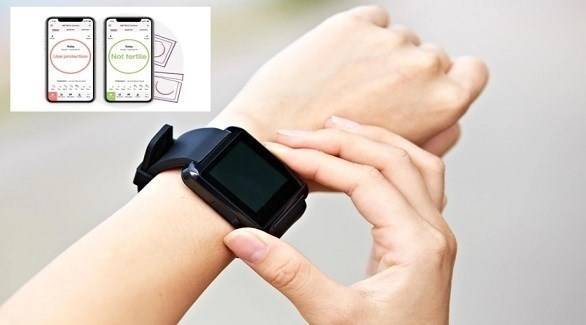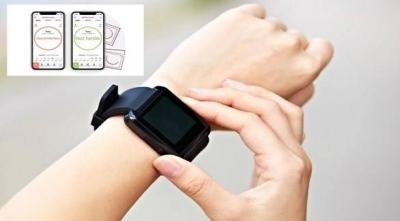The world's first wearable birth control device has received the green light for use from the U.S. Food and Drug Administration (FDA). The FDA has now approved Swedish company "Natural Cycles" to rely on wearable devices already used by millions for temperature reading and fertility tracking.
Until now, women using the Natural Cycles device had to take their temperature reading each morning with a thermometer and input it into a smartphone app. The app compiles data over time and then informs women whether it is safe to engage in unprotected sex.
Trials have shown that the app successfully tracked women's fertility using the Oura ring with the same accuracy as a thermometer, and the company has plans to develop its own devices. It has also received the same approval from health authorities in Europe.
**How Does the Device Work?**
A woman’s temperature changes throughout the month, indicating her proximity to her menstrual cycle and whether she is capable of conceiving. There are about nine days when conception is likely to occur. If a woman knows she is capable of conceiving, she can choose to either refrain from sex or use a condom.
Although this natural method has existed for decades, access has become easier in recent years due to smartphone applications that easily log data and apply algorithms.
Digital contraception means an end to the need to remember to take a birth control pill every day and can also bring hope to women tired of side effects from contraceptives like IUDs or implants. All birth control methods have side effects, and there’s a recent desire to move away from traditional contraceptives that affect women’s hormones.
Instead, women are looking toward what is called “natural family planning,” which involves identifying signs and symptoms of fertility during the menstrual cycle so that a woman can plan either for or against pregnancy. The UK health authority states that if instructions are followed accurately, this method can be up to 99% effective, similar to IUDs, birth control pills, and implants.
Natural Cycles claims the effectiveness of the new device is up to 93% with "typical use" and 98% with "perfect use." It is unclear at this stage how wearable devices will compare in effectiveness, as broader studies will need to be conducted, according to The Sun newspaper.




